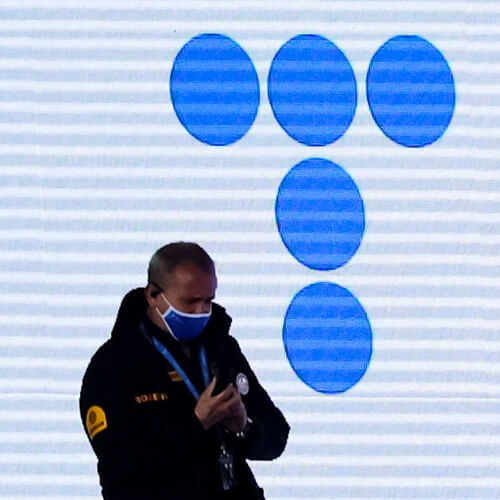
Also in today's EMEA regional roundup: Ericsson says private networks are good for airlines; Altice's FTTH infrastructure gets Arcep approval; London's Google Cloud data center suffers heatwave meltdown.
Telefónica is working with Sateliot, a satellite communications company, on the development of a new connectivity service with dual 5G NB-IoT technology in which Sateliot's new low-Earth orbit (LEO) satellite network will be integrated with Telefónica's current terrestrial NB-IoT networks to offer IoT connectivity wherever it's needed, including at sea. The system uses the network nodes of Kite, the managed IoT connectivity platform developed by Telefónica with which the customer can control and monitor their power lines. Figure 1:
 (Source: Reuters/Alamy Stock Photo)
(Source: Reuters/Alamy Stock Photo)And in other Telefónica 5G-related news, Telefónica España, via subsidiary TedCas, is collaborating with Boston Scientific to provide advanced healthcare technology to the recently created Remote Clinical Support Centre, which will be located in Madrid and will provide remote support to a number of hospitals in Europe, Africa and the Middle East dealing with cardiac patients. The low-latency nature of 5G will allow diagnostic equipment to be remotely controlled during a procedure, says Telefónica.
At a time when airports and airlines are still largely thrashing around in a period of post-peak-pandemic mayhem, Ericsson has released its Connected Aviation report, which looks at how private networks can help the aviation industry improve air-side operations and the customer experience. The report explores private networks case studies with Groupe ADP, Hub One and Air France; Airbus; and STC Saudi Arabia, citing, in some instances, performance gains of 20-40% for operations with private 5G networks.
French communications regulator has completed its audit of Altice France/SFR group's FTTH infrastructure and concluded that the group is not discriminatory in the way it deals with other commercial operators but did find that some of the information system tools used by the group were not fully interoperable with those used by third parties. The group has committed to rectifying this issue between now and the end of 2023.
London's Google Cloud data center suffered a "cooling related" outage on Tuesday as the UK capital – and a sizeable portion of the rest of the country – sweltered in temperatures of over 100 degrees Fahrenheit. As Reuters reports, a small number of Google Cloud's customers were affected, with issues persisting for several hours.
Sparkle, the international services arm of Telecom Italia, has activated spectrum capacity on the Monet subsea cable system connecting Brazil to the US. With this addition, Sparkle now offers five routes between North and South America.
The UK's Advertising Standards Authority (ASA) has cleared a TV advert for a Samsung smartwatch which featured a woman out jogging alone at 2 a.m. through city streets whilst wearing earphones and had attracted 27 complaints for being irresponsible by encouraging unsafe behavior. The ad attracted particular attention because of a spate of recent attacks on young women, including one that was carried out by a serving policeman. The ASA said: "We considered that running alone at night, of itself, was not likely to result in harm or injury. Whilst we acknowledged that an attack could happen, that was outside of a person's control and it could also happen in other, everyday scenarios and at all times of the day or night. For those reasons, we concluded that the ads did not encourage an unsafe practice and were not irresponsible." Samsung acknowledged that the ad "might have been perceived as insensitive by some viewers," and apologized for any offense given.
— Paul Rainford, Assistant Editor, Europe, Light Reading
Read more about:
EuropeAbout the Author(s)
You May Also Like











